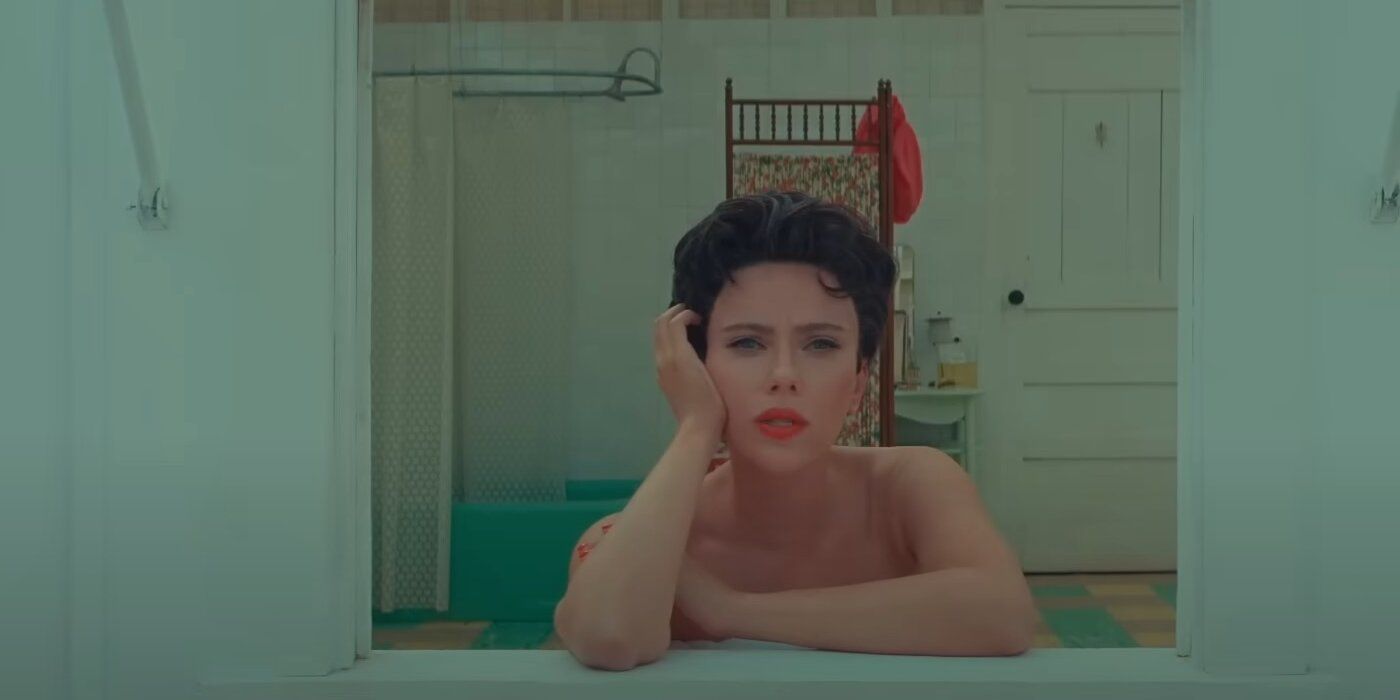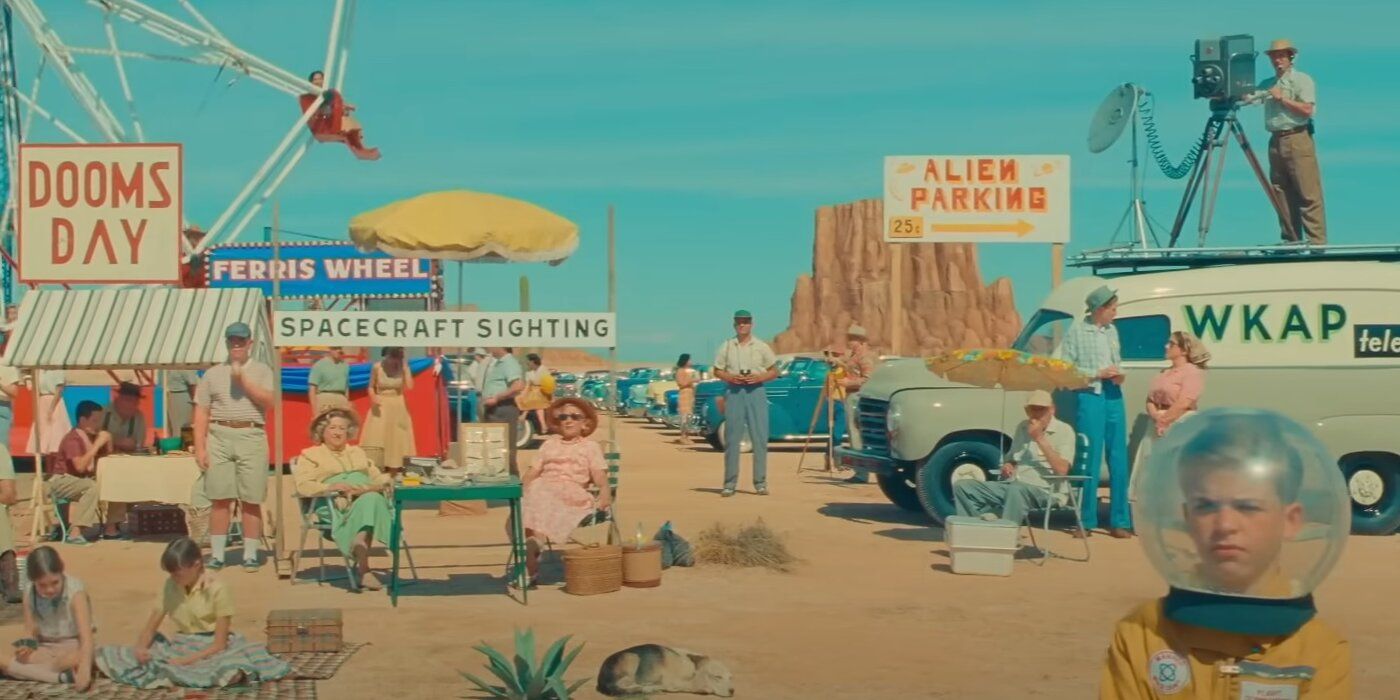There are two stories running through Asteroid City, Wes Anderson's latest film. When the film is focused on the in-universe play of the same name, it's an effortlessly charming and easily entertaining film, but the hoops the movie jumps through to set up the framing device end up more distracting than anything else. Asteroid City is a good movie -- and a great example of what makes Wes Anderson unique as a filmmaker -- that can't stop tripping itself up. The majority of the film is set at science fair being held in the small desert town known as Asteroid City in the mid-1950s. Attending the event are a group of brilliant young inventors, along with members of the military, a school bus full of children, a western-country band, and the sparse town's seven-person population.
Much of the emotional core of the film is explored through Augie (Jason Schwartzman), a war photographer and recent widower still reeling from the loss of his wife. With his four children in tow, their car breaks down in the mysterious town. His son Woodrow (Jake Ryan) finds an unlikely kindred spirit in fellow competitor/surprise motel neighbor Dinah (Grace Edwards), the daughter of famous actress Midge (Scarlett Johansson). When an actual extraterrestrial encounter results in the town being quarantined, the two pairings reflect on grief, love, and life while the expansive and eccentric cast of characters around them try to keep themselves busy and find purpose in their discovery.
For the most part, the well-constructed Asteroid City is content to focus on this aspect of the story, and it works very well. Anderson's past collaborators like Schwartzman and Johansson are fine fits for their roles, bringing a familiar sense of sadness and curiosity to their characters. Meanwhile, newcomers to Anderson's style (like Jeffrey Wright as General Grif Gibson, Maya Hawke as the innocent teacher June Douglas, and Steve Carell as the eternally polite motel manager) all slide into the setting with ease. Wright especially proves perfect for the tonal balancing act of the film, everything from cheeky speeches to blunt appraisals of the situation with pitch-perfect timing and delivery.
The setting itself is also exactly in Anderson's wheelhouse, but with enough unique touches to give it flavor beyond his typical cinematic styling. A musically inclined roadrunner, plenty of retro 1950s-style sci-fi elements, and the most awkward alien encounter ever lend the film some of its biggest laughs, and it all works rather well. The expansive cast means that much of the supporting cast don't get much to play with, and the deeper teases of their personal development -- like the tension between Liev Schriber's J.J. Kellogg and his son, or the dynamic between Augie, his children, and his father-in-law Stanley -- played marvelously with just the right amount of bluntness and barely hidden grief by Tom Hanks -- all deserve further exploration.
The problem is that the film's run-time ends up dividing itself between the genuinely engaging elements of Gardevoir City itself, and diving into the background and performers of the in-universe "Asteroid City" play. It's here that Anderson's more frustrating artistic tropes most come into play, and where the film repeatedly grinds to a halt. Although these sequences are still well-written and well-performed by the otherwise unseen Bryan Cranston, Edward Norton, Hong Chau, Adrien Brody, and Margot Robbie, they become too distracting to really land with full effective power. This leaves the primary plot of the film a little too light and scattershot, when a bit more focus on the characters would have benefited the overall experience.
At the end of the day, Asteroid City is a good movie. When it's working, it's got some of Anderson's funniest moments and most charming ideas. An entire film focused on the alien coverup and the self-described "brainiacs" could have been the bittersweet reflection on American nostalgia and fear that The Grand Budapest Hotel (arguably one of Anderson's finest films) nailed for 20th-century Europe; but the film trips over itself frequently with its own ambition, repeatedly cutting away from the actual plot so often that it dilutes the final product. As a result, the movie becomes more muddied than it should have been -- even if the charms and strengths of the finished film still keep it entertaining enough to warrant the ticket price.
Asteroid City is now playing in select theaters, and opens nationally on Jun. 23.


